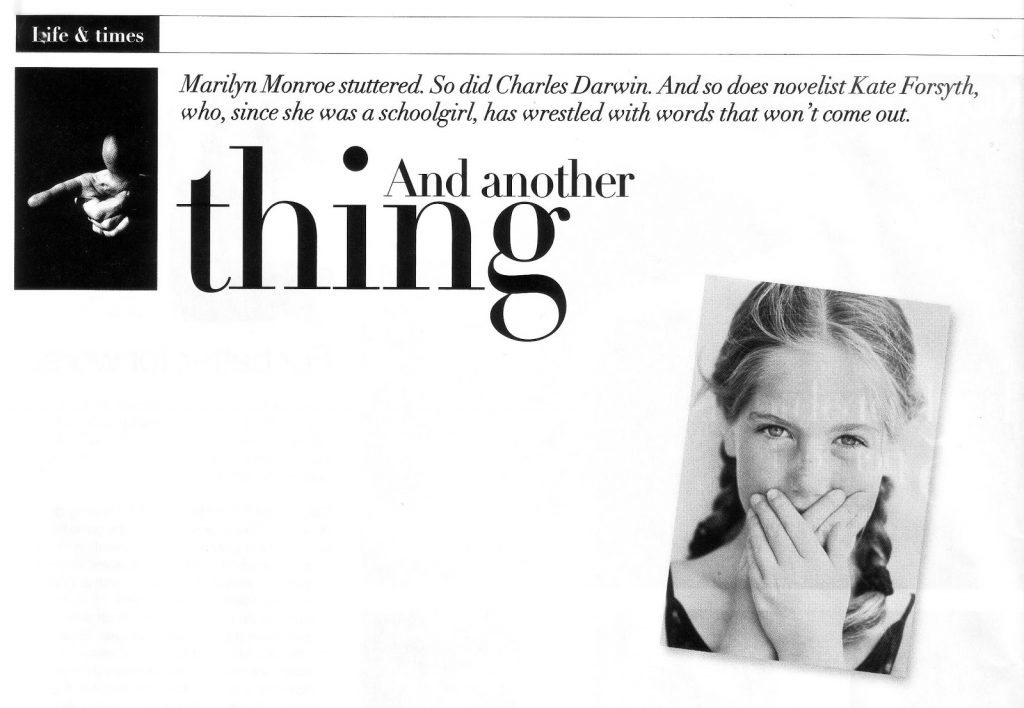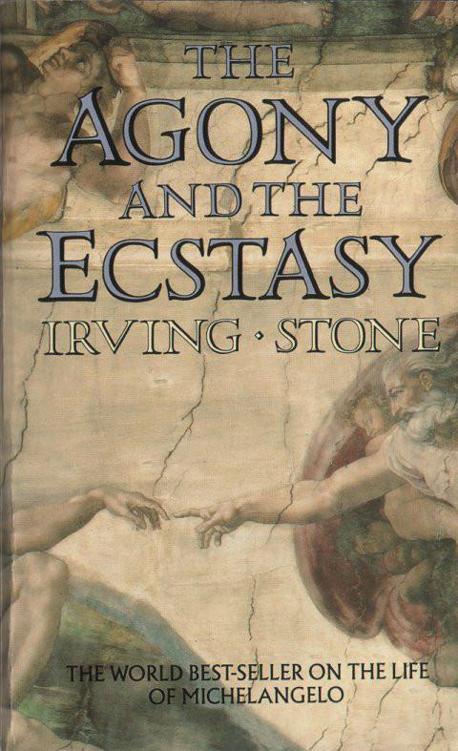I have struggled with my stutter all my life. When I was young, my stutter was so profound that at times I found it impossible to speak. Although I could hear the words in my mind, my tongue, my mouth, my throat were utterly paralysed, convulsing with my desperate efforts to make them work in harmony. This is called blocking. It is such an acute muscular spasm that no sound at all comes out. A complete stoppage of speech. I cannot tell you how awful this is.
I used to dread my turn to read aloud at school. As the teacher’s pointer came closer and closer, I would begin to feel the slow burn of humiliation rising through my body. My breath would shorten. My palms would prickle. I would skip ahead, searching for the paragraph I would have to read rehearing it over and over in my mind, yet when at last my turn came, all my tortured mouth could deliver was a sound like a frog being strangled.
Everyone would laugh. The teacher would wait, sometimes kindly. At last the pointer would move on. Later, I would be followed through the playground by a group of children chanting mockingly, “K-K-Katie, K-K-Katie”, from a TV advertisement of the day.
As an adult, I have been deep in conversation with someone and seen them roll their eyes as my mouth has mangled yet another magnificently conceived, clumsily articulated sentence. In my mind, the words are mellifluous as honey. In my mouth, they are shards of broken glass.
Sixty million people in the world stutter. Many more have minor “disfluency” that causes them to stumble and mumble, to um and ah. Every word we speak calls on 37 muscles and thousands of nerves. It’s not surprising that sometimes these nerves and muscles fail us. Yet, the disfluency of a stutterer is a far more serious malfunction. Simply put, stuttering is a disorder of rhythm in which the speaker knows precisely what they wish to say but cannot, for the moment, say it because of an involuntary repetition, prolongation or cessation of sound. It prevents them from expressing and communicating naturally.
It is believed that stuttering is due to some inefficiency in the neurological processing that underlies speech. Brain scans of adult stutterers show some neurological abnormality but it is not known whether these are present before a child talks and therefore cause stuttering or whether stuttering causes the child’s brain to develop abnormally.
This neurological abnormality does not mean that people who stutter are more stupid than anyone else. It does not mean they are more anxious or more prone to psychological disorders (other than those that come from being mocked all their lives). Winston Churchill stuttered and so did Charles Darwin and Marilyn Monroe.
It means that there is a gap between the formation of words in the brain and the formation of sounds by the tongue and palate. Stuttering can be cured – or at least alleviated to the point that it is no longer a serious disability. The best treatment works by making the job of speaking less complicated. It teaches a stutterer how to change the sounds, rhythm and speed of their speech.
People who meet me now don’t realize that I was once severely hindered by my inability to speak or that I am constantly on guard against the trip-wire, the tongue-tangler. I have spent my life learning how not to stutter. I try to speak more slowly, to breathe more deeply, to allow time for my vocal cords to catch up with my brain.
It not easy to overcome. I had years of speech therapy, including a stay at a stutterer’s camp where we were given coupons for food, one of which was taken away every time we stuttered. I would have starved if they had not eventually taken pity on me.
I am more likely to stutter when I am tired or excited or angry or nervous. I avoid certain words, knowing they will always trip me up. I avoid certain people. These are usually individuals who are impatient, who finish my sentences for me, who roll their eyes and sigh. Every day I grapple with words, trying to make them say what I want them to say. There is nothing I passionately admire more than a conqueror of words and nothing that shames me more than my occasional defeat.
Most people take for granted the ability to speak, to argue, to command, to persuade. The sorcerous power of words is no more entrancing to them than the flick of a cigarette lighter. Yet, to someone like me, words are like lightning bolts – dangerous, unpredictable and blazing with beauty.
Maybe that is why I am a writer.








